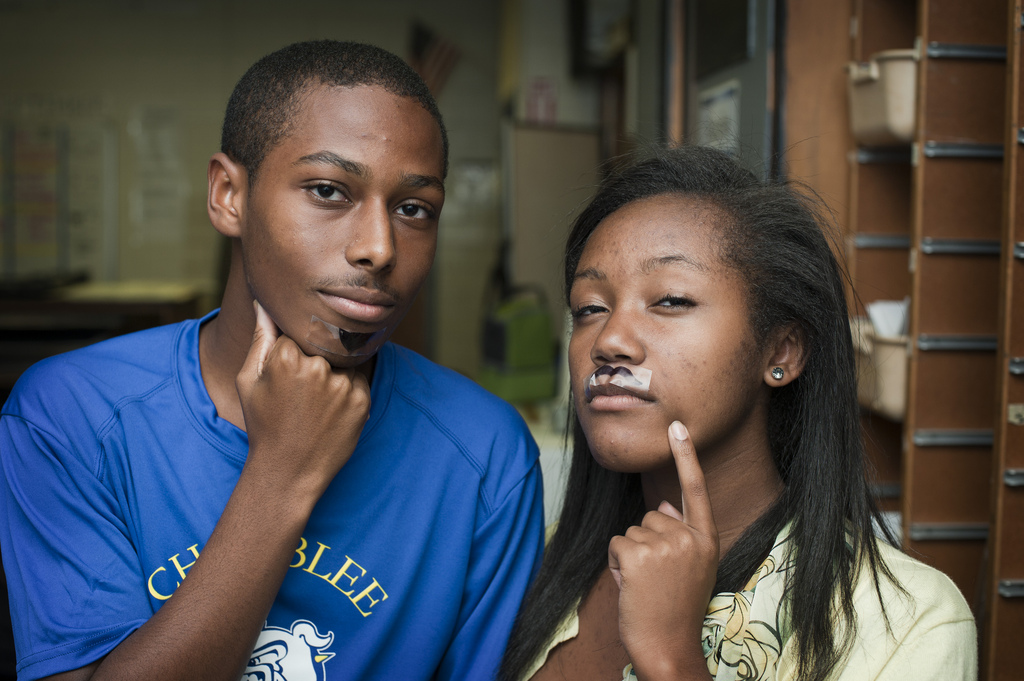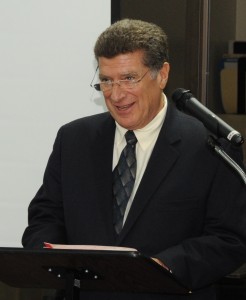News & Announcements
Are you interested in creating a culture of community and connection on your campus? What tools can be used to live out the mission and values of your university actively every day? How can you engage students in addressing decisions they make as opportunities to learn? What is Restorative Justice (RJ) and how can you bring the principles and tools of RJ to your campus? This manual was developed to help answer these questions and provide a framework to bring restorative justice to your Institution of Higher Education. This framework is based on the impressive Restorative Justice work that is being led by Administrators and RJ Practitioners utilizing RJ principles and tools at 9 prestigious colleges and universities across the United States.

A new book from ASCD Publications, How to Create a Culture of Achievement in Your School and Classroom, by Douglas Fisher, Nancy Frey and Ian Pumpian, includes a section on restorative practices, largely informed by the IIRP book, The Restorative Practices Handbook for Teachers, Disciplinarians and Administrators.
 Image from collegemagazine.com courtesy of nativeamericanministry.comHere's a piece by Kristi Eaton of the Associated Press from Pine Ridge, South Dakota. According to the story, the first circle has been convened for a youth case with hopes to continue and broaden the program. Note in the second paragraph that victims and relatives of victims and the offender are included in the process:
Image from collegemagazine.com courtesy of nativeamericanministry.comHere's a piece by Kristi Eaton of the Associated Press from Pine Ridge, South Dakota. According to the story, the first circle has been convened for a youth case with hopes to continue and broaden the program. Note in the second paragraph that victims and relatives of victims and the offender are included in the process:
A South Dakota tribe has been testing a form of restorative justice called sentencing circles in hopes it will make community members more accountable to each other and reduce the number of people who commit more crimes.
From Minnesota Department of Education describes how principals use restorative discipline practices | Twin Cities Daily Planet comes this rather striking statement about a survey conducted in the state:
"The survey was completed by 417 Minnesota principals, of whom 66 percent reported using restorative methods in response to some behavior problems."
And then there this quote by Nancy Riestenberg:
“Students have to be held accountable for making mistakes,” Riestenberg said. “If you don’t give them the opportunity to wipe up their own milk that they spilled, you’re robbing them of the responsibility to learn that they can make a mistake, and they can fix it.”She said suspensions can actually increase incidences of bullying. They can lead to lowered academic achievement and decreased attendance. “The suspensions ended up making them feel so disconnected they didn’t want to come anymore,” she said.
Two letters tell the story. This was posted Monday, May 7, 2012 in the Upper Rogue Independent, without a byline:
One of the programs that we administer in partnership with the Jackson County Juvenile Department is called the Victim Assistance, Youth Accountability (VAYA) program. This program is rooted in the principles of restorative justice - a community response to crime that focuses on addressing the harms done to victims and communities by holding offenders meaningfully accountable for their offenses. According to Cara Walsh, Director of Restorative Justice Programs for Mediation Works. We recognize that crime is more than just a violation against the law and state, but also a violation of people and relationships. Thus, our role in the community is to support youth in being accountable for the harms they caused, provide supportive services to victims of crime, and engage the community in this process, said Walsh.
 The Restorative Justice Council has posted that on June 9, 2012, in the Queen's Speech which marks the start of the new session of parliament, she will mention "Neighbourhood justice panels, in which community volunteers use restorative justice to deal with anti-social behaviour and low-level crime." This process will be a part of new legislation. According to RJC:
The Restorative Justice Council has posted that on June 9, 2012, in the Queen's Speech which marks the start of the new session of parliament, she will mention "Neighbourhood justice panels, in which community volunteers use restorative justice to deal with anti-social behaviour and low-level crime." This process will be a part of new legislation. According to RJC:
 Israel is home to many different people and communities. Restorative dialogue among these individuals and groups and between them could make life much more relaxed and happy.
Israel is home to many different people and communities. Restorative dialogue among these individuals and groups and between them could make life much more relaxed and happy.
Israeli society was introduced to Restorative Justice and its concepts in the late 90’s. In November 2011 the Knesset (the Israeli Legislature) incorporated restorative justice in its legal system with the 16th amendment of the 1971 Youth Judgment, Punishment and Methods of Treatment Law, making restorative justice practices a formal criminal justice diversion in juvenile cases. Recently, the Israeli Ministry of Justice also initiated a pilot restorative justice program designed for adult offenders.
 "Absolutely no horsing around in MY art room..." Photo by Angela @ My Daily Struggle, Flickr Creative CommonsAn article May 8, 2012 in the Connecticut Post by Brittany Lyte is titled "A racial divide in school discipline: Blacks, Hispanics suspended at a higher rate." Page 1 of the story discusses recent news that minority students face disproportionate punishment in schools as applies throughout Connecticut. Page 2 explores reasons for the discrepancy and proposed legislation to make school discipline policies more transparent. At the end of the page and then into page 3 Ted Wachtel is quoted relating the restorative practices approach to this discussion of education discipline policy:
"Absolutely no horsing around in MY art room..." Photo by Angela @ My Daily Struggle, Flickr Creative CommonsAn article May 8, 2012 in the Connecticut Post by Brittany Lyte is titled "A racial divide in school discipline: Blacks, Hispanics suspended at a higher rate." Page 1 of the story discusses recent news that minority students face disproportionate punishment in schools as applies throughout Connecticut. Page 2 explores reasons for the discrepancy and proposed legislation to make school discipline policies more transparent. At the end of the page and then into page 3 Ted Wachtel is quoted relating the restorative practices approach to this discussion of education discipline policy:
 This summer IIRP president Ted Wachtel will be attending and presenting at three major conferences.
This summer IIRP president Ted Wachtel will be attending and presenting at three major conferences.
First, in Helsinki, Finland he'll be presenting at the 7th European Forum on Restorative Justice. This year's theme is "Connecting people - Linking Victims, Offenders and Community." Wachtel's presentation is titled "Improving School Climate Through Restorative Practices," and time will be made for questions and answers, as well. The conference runs June 14 to 16, 2012, and more information about it can be found here.

